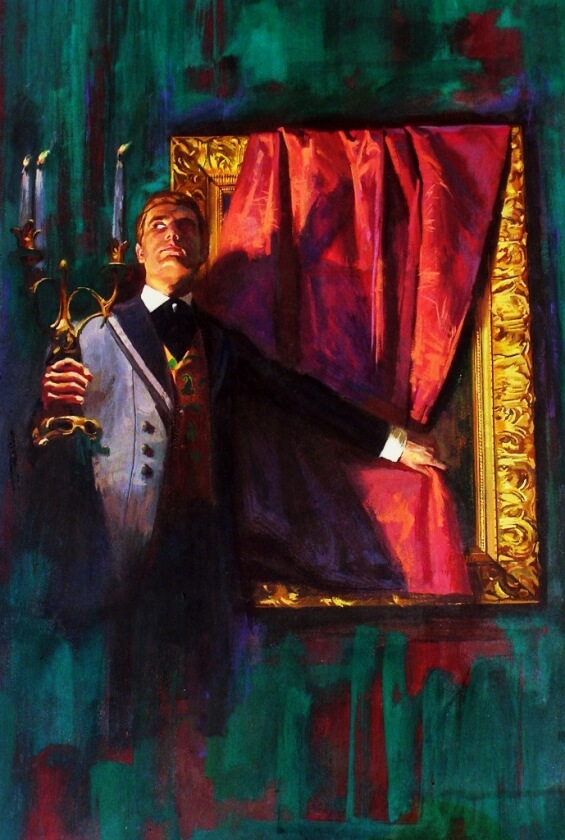
 The SFFaudio Podcast #352 – Jesse, Mr Jim Moon, and Prof. Eric S. Rabkin talk about doors, gates, and portals (and rubicons)
The SFFaudio Podcast #352 – Jesse, Mr Jim Moon, and Prof. Eric S. Rabkin talk about doors, gates, and portals (and rubicons)
Talked about on today’s show:
thinking about doors, individual phenomena, a phenomenological way, white and purity, water, Edmund Husserl, an intensional act of consciousness, the conquistadors, when did WWII happen?, what kind of a phenomenon is a door?, doors are artificial, Narcissus and the lake, a boundary, passages for the whole body, windows, two-way passages, quicksand, horizontal movement, four qualities, the story of Oedipus, the riddle of the Sphinx, man -> mankind, the founding myth of Western culture, Aristotle, from one world to another, Eric in his professorial mode, the word world, were = man, the age of Man, in the world of…, the social domain that human beings create for themselves, prisons, doors as phenomena are artificial boundaries between two different worlds, social changes from one side of a door to another, doors as a phenomenon represent changes from consciously defined worlds, outdoors vs. indoors, inside and outside the gingerbread house, the morning thesis, the idea for this show, windows as opposed to doors, The Wonderful Window by Lord Dunsany, wanting to turn windows into doors, a rich example, sliding doors vs. sliding windows, in Science Fiction…, Robert A. Heinlein, defining the writing style of Science Fiction, the ideal Science Fiction sentence, Beyond This Horizon, “The door dilated and a voice from within said ‘Come in Felix.'”, wasting energy, one little change makes it a Science Fiction world, Heinlein invented the word “slideway”, Friday, from the reader’s armchair world it the fantastic world, folklore, liminality, crossing rivers, wandering into the forest, a wild world with gods and monsters, agrarian rural society -> industrial living, the wardrobe, The Door In The Wall, The Gable Window by H.P. Lovecraft and August Derleth, Dreams In The Witch-house, a locked-room mystery, The Secret Garden, a Wellsian door in the wall, what’s behind the door could be anything, mythical monsters, vampires need your permission to cross your threshold, Dracula comes in through the window, defying gravity and the phenomenology of windows, an instant subliminal marker, ho ho ho, Murders In The Rue Morgue by Edgar Allan Poe, the lore of changelings, leaving the house by the chimney, Little Red Riding Hood, “dispatched by typical female means” (cooking), Alice In Wonderland and Through The Looking Glass, Alice is fantasizing before she leaves the bank of the river, the river side is a liminal domain, dazing, daisies, crossings, protective imagination, opening the door for a sequel, Neverwhere by Neil Gaiman, a girl named Door, London’s underclass, being homeless is living outdoors, a hunter named Hunter, Door’s father is Lord Portico, a door back into Heaven, another rich text, worlds within worlds, the word hinge, ideas hinge upon something, stiles aren’t like doors, stiles don’t have hinges, lichgates and side doors to churches, the dead enter the church through a different door than the living, The Superstitious Man’s Tale by Thomas Hardy, shades of everybody, fourteen saints, a holiday in Germany, the blood of a sacrificial lamb, Exodus, keeping death from the door, all saints day, Jack-O-Lanterns scare off the returning dead, nature, walking through a gate, spirits pass through, how do gates function in keeping out the spirits of the dead, gates as territorial boundaries, “you come in through here”, the laws of territoriality, a keeper of the gate, the gate is the cover of the book, the door is what we cross “Once upon a time…”, “the second page of the first paragraph of a famous book”, why round?, why the exact center?, why green?, Eric’s eyes are green, The Door In The Wall has a green door, magic doors are often green, The Magic Door The Green Door (aka The Little Green Door) by Mary E. Wilkins-Freeman, horrible and messy and smelly, fundamental jokes in the Shrek series, Shrek is green too, kids love farts, About Time (2013), Domhnall Gleeson going through doors, “doors are amazing”, The Phantom Tollbooth by Norton Juster, the Chinese Scholar’s garden at Snug Harbour cultural center, moon gates, gates post signs, gates offer viewpoints, from The Haunted Palace by Edgar Allan Poe:
And all with pearl and ruby glowing
Was the fair palace door,
Through which came flowing, flowing, flowing
And sparkling evermore,
A troop of Echoes, whose sweet duty
Was but to sing,
In voices of surpassing beauty,
The wit and wisdom of their king.But evil things, in robes of sorrow,
Assailed the monarch’s high estate;
(Ah, let us mourn!—for never morrow
Shall dawn upon him, desolate!)
And round about his home the glory
That blushed and bloomed
Is but a dim-remembered story
Of the old time entombed.And travellers, now, within that valley,
Through the red-litten windows see
Vast forms that move fantastically
To a discordant melody;
While, like a ghastly rapid river,
Through the pale door
A hideous throng rush out forever,
And laugh—but smile no more.
the mouth as a door for voice and wisdom (and later a gate for flies and maggots), orifices, doors are artificial, eyes as windows, windows as natural, calm water as a window, the night sky as a window into the universe, window = wind and eye, a metaphor switching meaning, a heart is like a pump and a pump is like a heart, Babylon 5, star-gates, the Twilight Zone show inside Futurama: The Scary Door, Fredric Brown: “The last man on Earth sat alone in a room. there was a knock on the door.”, William F. Nolan’s the door problem, a seventy-foot bug, the imagination trumps revelation, film, Shiley Jackson’s The Haunting Of Hill House (in the book and the film), banging vs. knocking, the unopened door, the end of The Monkey’s Paw by W.W. Jacobs, The Psychoanalysis Of Fire by Gaston Bachelard, “fire: fine servant, horrible master”, poor little rich boys, the ultimate irony: Arbeit Macht Frei, an open gate, the phenomena interpenetrate, Rubicon (lost and found), The Cold Equations by Tom Godwin, “h amount of fuel will not power an EDS with a mass of m plus x”, uni-directional time travel as a kind of rubicon, Julius Caesar’s crossing, Alea iacta est (“The die is cast”), suicide, Jean Paul Sartre, Rip van Winkle, rubicons are natural, driving in Los Angeles county, counties and shires divided by rivers, the mouth as a (mostly) one way door into the body, Protector by Larry Niven, the tree of life root is a one way door (a rubicon), The King In Yellow by Robert W. Chambers, The Ring, the River Styx, ancient heroes and gods crossing back and forth across the river Styx, biological machines, Jesus Christ’s tomb door, a locked room mystery, doubting Thomas, The Cold Equations as a demarcation between materialist SF and all other kinds, rejecting the premise of the story, two kinds of laws, “Marilyn willingly walks into the airlock and is ejected into space.”, myth vs. hard Science Fiction vs. soft Science Fiction, The Hitch-Hiker’s Guide To The Galaxy by Douglas Adams, a few examples in literature, The Pied Piper of Hamelin, seven gates to Hell in Pennsylvania, Hell, Michigan, Audie Murphy’s To Hell And Back, a rubicon as an irrevocable choice, The Subtle Knife by Philip Pullman, Will cutting portals to other realms, “the ability to create portal given to someone on the cusp of puberty”, age 21 (given the key to the door), Key to the city, garter -> gate, barbicans, walled homes in the northern Mediterranean, doors within doors, protected by the laws of the city, the freedom of the city given to military units, Janus -> January, a two faced god and the god of doors, the doors to the temple of Janus are closed, open cities, Brussels, the locking of doors, growing up in New York you’re never fully at peace, living in Strawberry Point, Iowa, wifi open vs. wifi encrypted, wardriving, keeping the door open, the subspecies, dutch-doors, squeaky hinges, a door that opens up, China Mountain Zhang by Maureen F. McHugh, “falling backwards into a world in which a consciousness extends infinitely in all directions”, “the phenomenology changes the epistemology”, ontological differences, The Star Rover by Jack London, a portal to other places and times via astral projection, even in confinement one can find ways out, The Demolished Man The Stars My Destination, Hypnos by H.P. Lovecraft, the restriction of the coffin of the body, jaunting, The Count Of Monte Cristo by Alexandre Dumas, The Twilight Zone episode The Hunt, a country bumpkin -> a rural American, all dogs go to heaven, gatekeepers and doorkeepers, porter, the Battle of the Teutoburg Forest, wine drinkers and beer drinkers, the Sapir-Whorf hypothesis, was anything down that hatch on Lost?


Posted by Jesse Willis
 The SFFaudio Podcast #340 – The Boats Of The Glen Carrig by William Hope Hodgson, read by Jason Mills.
The SFFaudio Podcast #340 – The Boats Of The Glen Carrig by William Hope Hodgson, read by Jason Mills.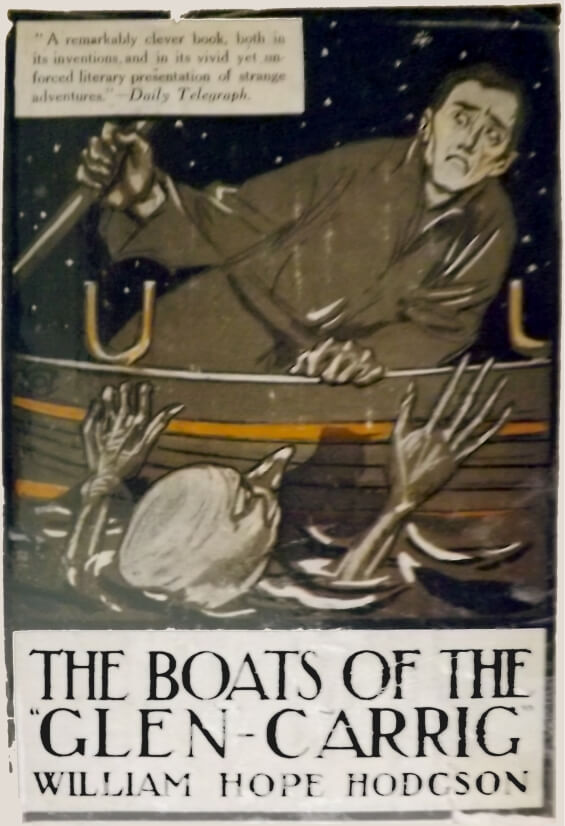
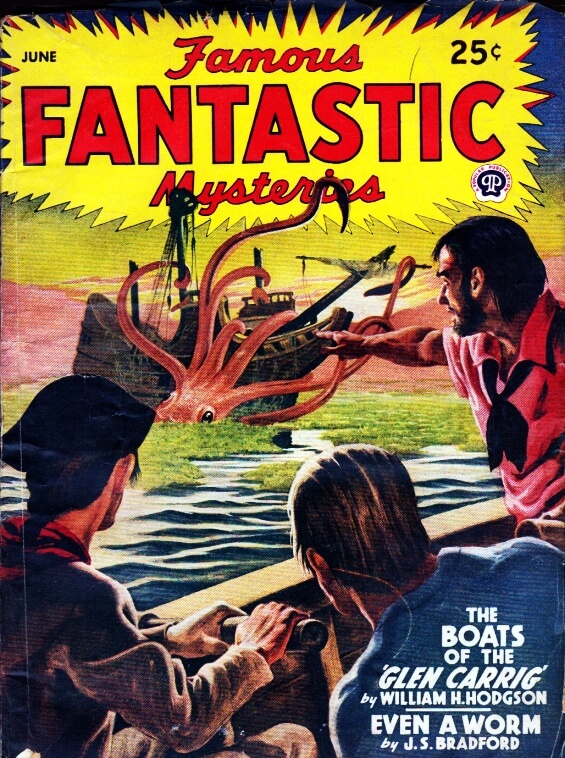
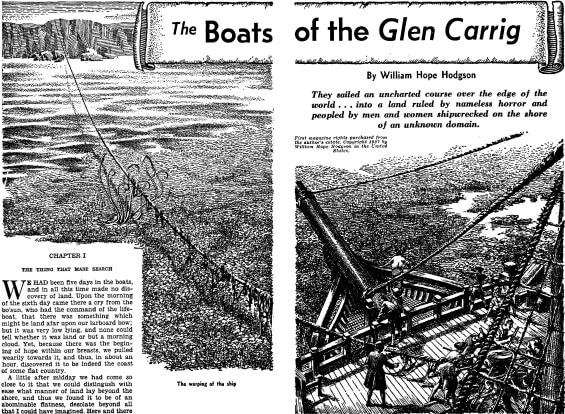
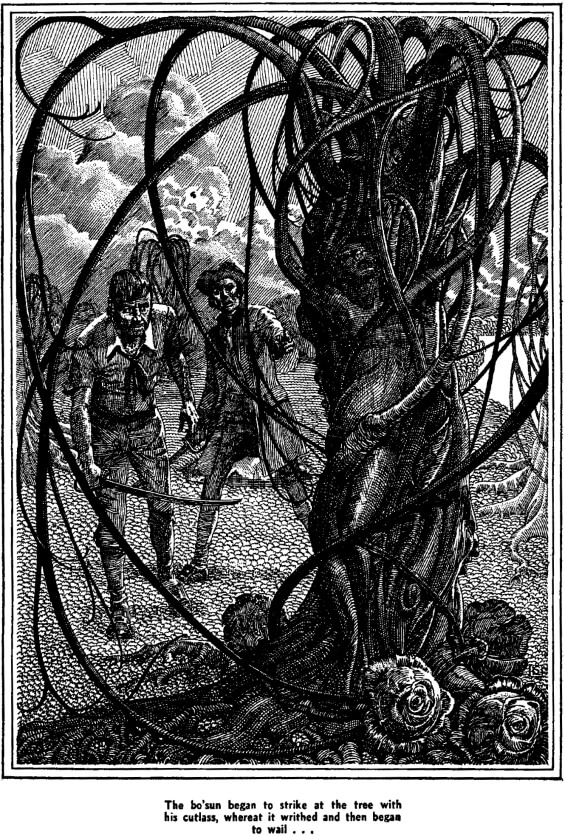
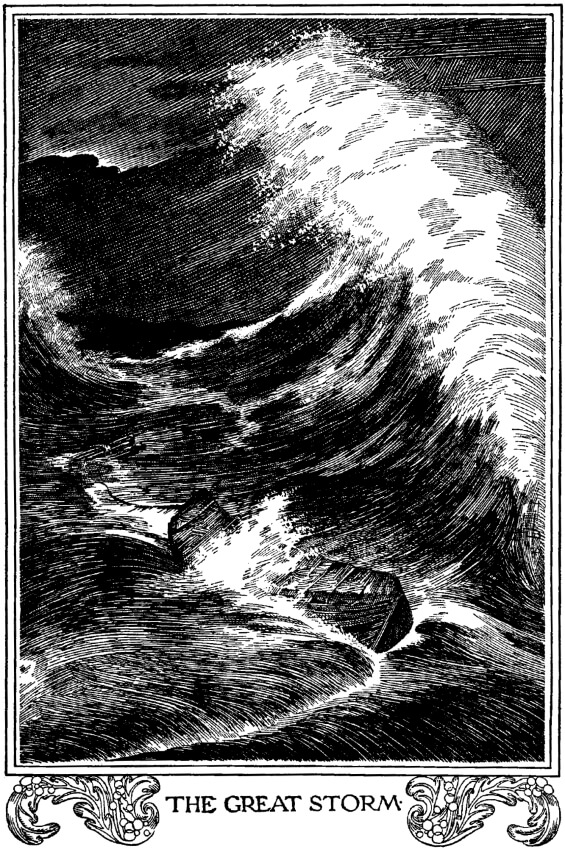
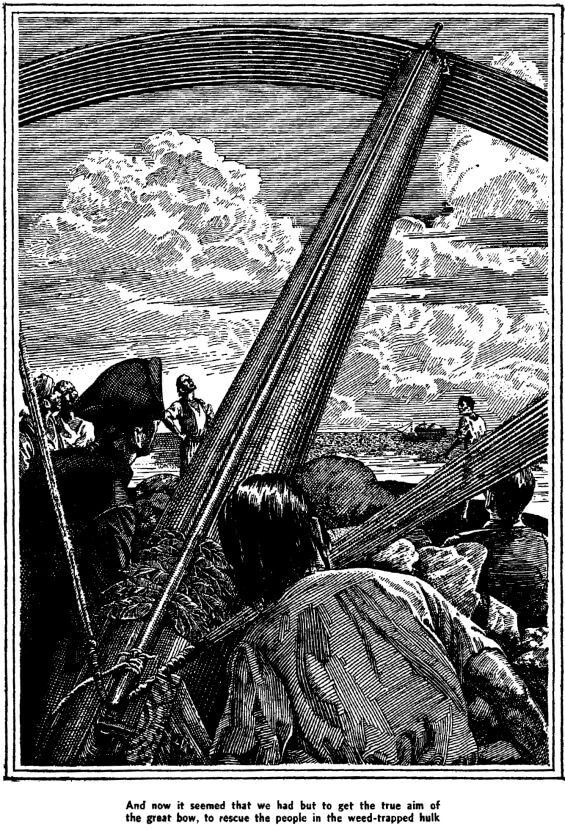
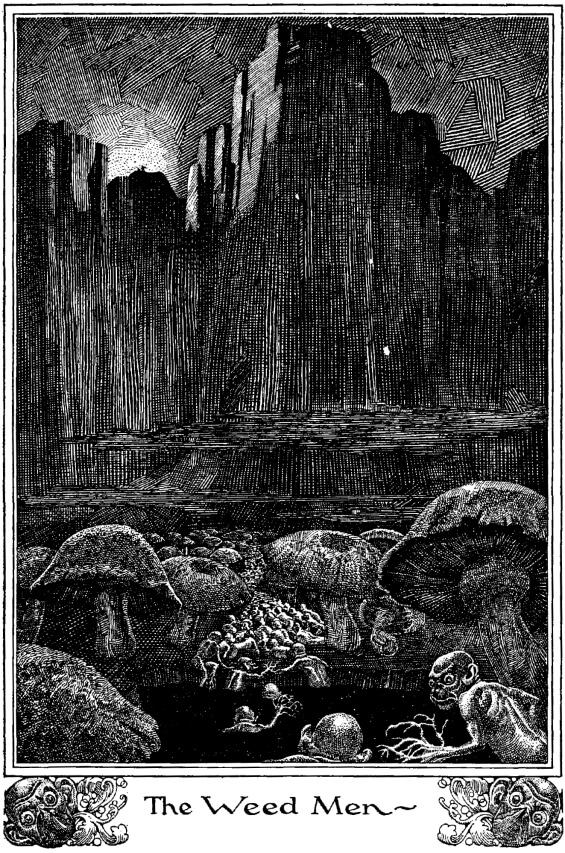

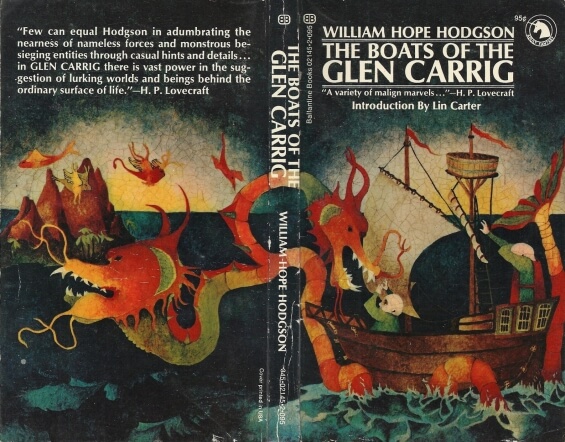
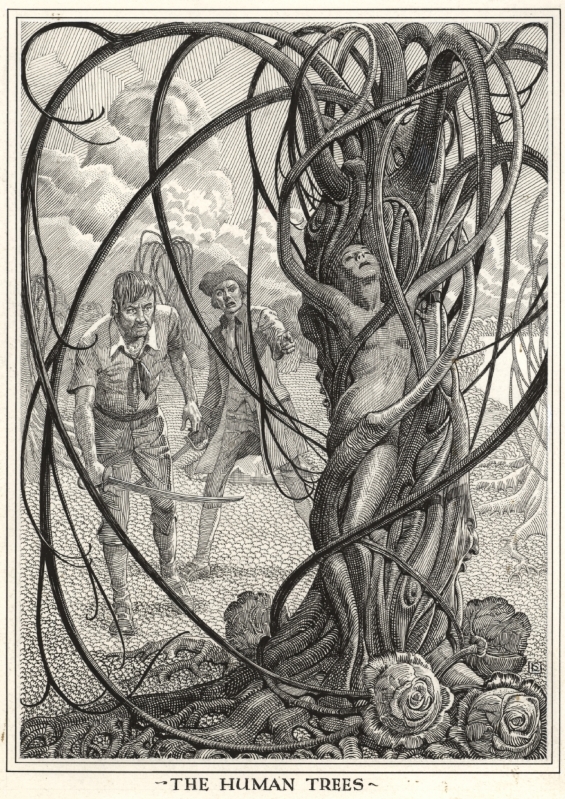
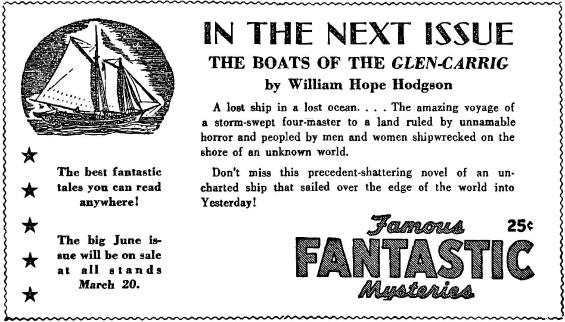



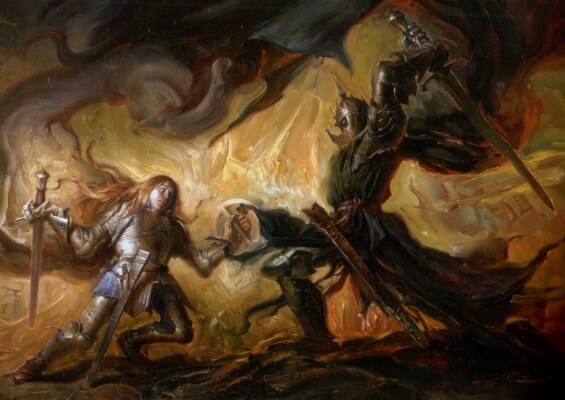
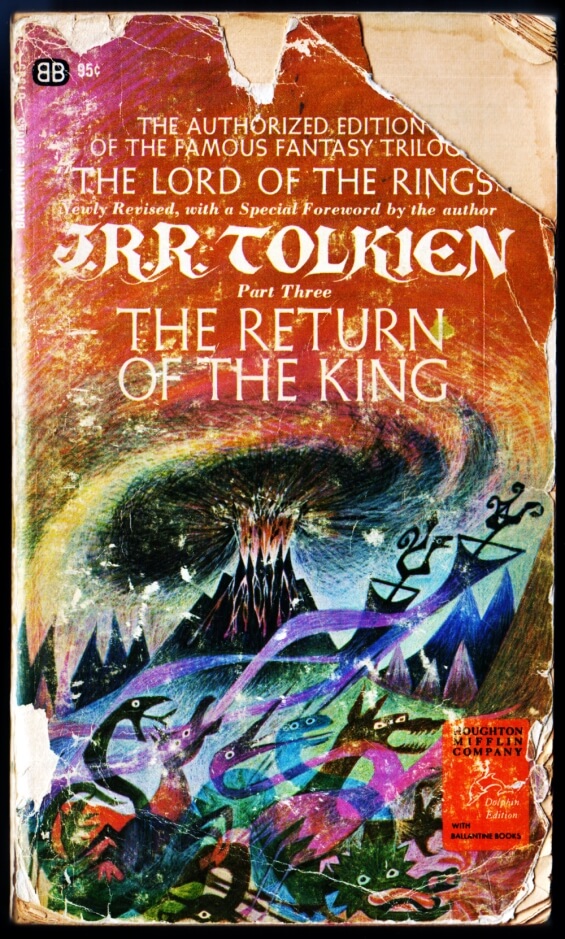
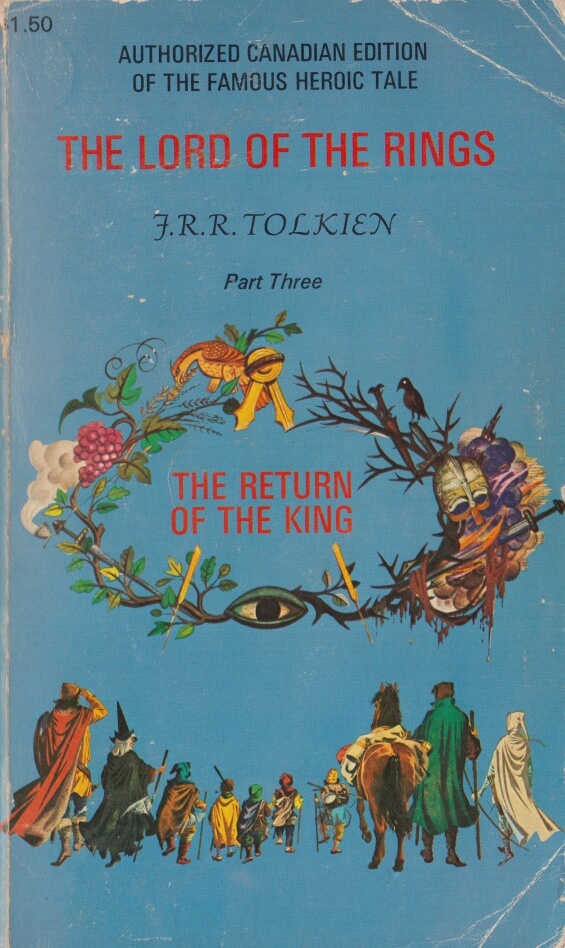
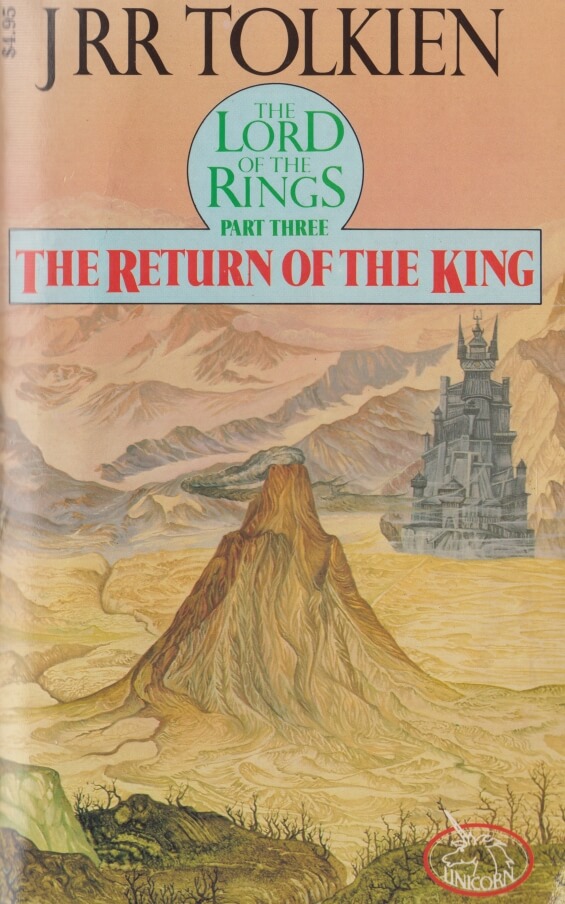

 The Aeronaut’s Windlass (The Cinder Spires #1)
The Aeronaut’s Windlass (The Cinder Spires #1)